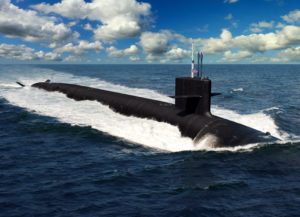
The Department of the Navy’s comptroller this week warned if the government faces a sequester starting in 2024 the Navy would face a $15 billion budget cut and if there is a year-long continuing resolution the Navy would have about $26 billion misaligned while the second new nuclear-armed submarine could not be procured. “Despite the stability and responsibility the Fiscal Responsibility Act [FRA] was supposed to give us across the U.S. government, passed by both chambers of Congress, we are…

 By
By 











